We believe any woman can be a feminist icon, but these ladies are currently leading the way.

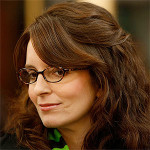
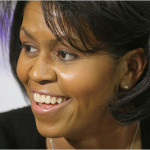 Women wouldn’t be where we are today without the feminist icons who first fought for and inspired us. We owe our right to vote to Elizabeth Cady Stanton. Sojourner Truth spoke up for all women when the slavery-era abolitionist delivered her groundbreaking speech, “Ain’t I a Woman?” Betty Friedan gave us one of the most important feminist texts in The Feminine Mystique, helping women to break out of their happy-homemaker bonds—and she co-founded the National Organization for Women. Virginia Woolf and Dorothy Parker were among the first to give voice to the emotional depth and biting wit of women during times of extreme sexism. Shirley Chisholm paved the way for Hillary Rodham Clinton and any other female presidential hopeful. And Gloria Steinem made fighting for gender justice chic to generations of women. These icons—and countless others—were our mothers’ and grandmothers’ feminist role models. They planted the seeds for what’s become a blooming revolution that advances and changes with every move we make.
Women wouldn’t be where we are today without the feminist icons who first fought for and inspired us. We owe our right to vote to Elizabeth Cady Stanton. Sojourner Truth spoke up for all women when the slavery-era abolitionist delivered her groundbreaking speech, “Ain’t I a Woman?” Betty Friedan gave us one of the most important feminist texts in The Feminine Mystique, helping women to break out of their happy-homemaker bonds—and she co-founded the National Organization for Women. Virginia Woolf and Dorothy Parker were among the first to give voice to the emotional depth and biting wit of women during times of extreme sexism. Shirley Chisholm paved the way for Hillary Rodham Clinton and any other female presidential hopeful. And Gloria Steinem made fighting for gender justice chic to generations of women. These icons—and countless others—were our mothers’ and grandmothers’ feminist role models. They planted the seeds for what’s become a blooming revolution that advances and changes with every move we make.
And, boy, how it’s changed. Just as feminism has evolved from elite to radical, from first-wave to third-wave, so too has the concept of role models. The above women were instrumental in the feminist movement, but these days many young women look to public figures and entertainers for inspiration—in everything from how to style their hair (see: Jennifer Aniston) to what books they should read (see: Oprah). That’s why we love seeing some great female stars using their powers for good. After all, tackling Anna Karenina because you heard that Reese Witherspoon loved it doesn’t make your reading it any less valid. Incorporating environmental, free-trade consciousness into your diet and purchasing habits because you were inspired by an article you read on Alicia Silverstone doesn’t weaken the impact of those decisions. Contributing to Planned Parenthood and reading up on gender justice because an abortion-themed episode of Friday Night Lights moved you doesn’t make your activism less legitimate.
The potential feminist power of entertainment is that even women whose main source of exposure to the outside world is through their television sets or magazines can find feminist role models. TV shows with strong female leads—30 Rock and The Closer, Grey’s Anatomy and How I Met Your Mother—are on every week, reaching millions more than a women’s studies text or independent feminist website. And, of course, there’s that lady who grew up idolizing Mary Richards and became one of the most influential women on the planet. Every day, millions of women change their lives, focus and goals because of something they saw on The Oprah Winfrey Show. It’s that devotion that gave Oprah the ability to launch her own TV network in January, 2011, a first for any woman. It’s people like her who convince us we just might make it after all.
And it’s in that spirit that we offer our own ideas about today’s Marys—the role models who can inspire an empowered spirit in a new generation of women. That doesn’t mean famous women are better feminists than the hard-working grassroots community organizers, activists, scientists, scholars, moms, freedom fighters, volunteers, and other everyday heroines. But if a few celebrities can make feminism seem cool to young women who’d otherwise never consider it, we say that’s damn sexy progress. The following women are leading the way, shaping and changing popular culture and feminism with every move they make. Meet your new feminist icons.
Tina Fey – Feminism’s Involuntary Heroine
Tina Fey may be the greatest feminist pioneer we’ve seen in a generation—despite the fact that she never set out to be.
In 1997, Fey became the first female head writer in Saturday Night Live’s 22-year history—and her tenure was credited with saving the then-fledgling franchise. As her skits grew more topical, hilarious and pro-woman, ladies everywhere fell for her. So did men, but she titillated with her brain, rather than with her body. Fey’s first scripted film, Mean Girls, became the new Clueless—empowering, quotable, and layered with positive messages for girls and women. The fact that it’s also laugh-out-loud funny is testament to Fey’s talent. Defending women—and bashing the stereotypes against them—is Fey’s feminist calling card. Yes, it’s true—feminists can be funny!
30 Rock, however, is the pièce de résistance on Fey’s feminist resume: Her showbiz-based sitcom about a hard-working TV writer and her unlucky-in-love shenanigans gave women a role model more relatable—and thus more powerful—than Sex and the City’s Carrie Bradshaw. If Carrie is a descendant of Holly Golightly, Liz is the spiritual daughter of Mary Richards. While both have their iconic and feminist merits, Liz Lemon is the woman most of us truly feel like in this harried, complicated new millennium. For better or worse, trying to balance a successful career, a history of bungled relationships, and an appetite for sub sandwiches or white wine is far more relatable to most of us than penning sex columns in between glamorous parties and $400-shoe-buying sprees.
Liz Lemon captures the quintessential lady problem of the modern age: the frustration—and futility—of trying to “have it all.” The ridiculous nature by which she fails and flails is Fey’s critique on the expectations placed on educated, ambitious career women everywhere. The show is a fictional fuck-you to the stereotype. The fact that Tina Fey, the woman—a wife and mother in real life—has managed to defy it only furthers her feminist cred.
Feminist Lessons Learned
Smart is sexy: From the onset of her popularity, Fey has owned her sexy-nerd looks, refusing to go bombshell—unless it’s for laughs. Even though men now call her a sex symbol—not that we’re looking to such labels for validation—she’s won them over without compromising her ideals. Even when trading in her signature glasses and short hair for smoky eyes and va-va-voom dresses in magazine photo shoots, she’s always called the shots. Case in point: The April 2010 issue ofEsquire—which pictures her donning a navel-grazing neckline on the cover and frolicking with a police officer in boudoir clothing inside—drew accusations of hypocrisy. But she fired back onEsquire’s web site:
I got an email [from Esquire] with a list of the potential setups, and my email back was like, ‘Well, I need to decline being handcuffed to a bed.’ I won’t straddle anyone. I won’t make out with a cop. There are certain things, I totally get them as a premise, but, you know, I’m a mom. And my kid’s going to find this someday. I don’t want to be handcuffed to a bed in Esquire.
The photos were sexy, yes, but also comical and within the limits that made her comfortable. Knowing where the line is and defending it is a feminist act. Plus, by walking that line, Fey is rejecting the stereotype that women can either be sexy or smart. Sexy feminists can take pride in both: Is smart not sexy?
Body image isn’t worth obsession: When asked about dieting—which, gag, always somehow makes its way into interviews with any famous woman—Fey is quick to denounce it. “I don’t weigh myself. I try not to participate too much in the incredible amount of wasted energy that women have around dealing with food. I just feel like being healthy is sort of a job requirement to be on TV, and being a writer is so much coping with fatigue and stress, and you just eat. You eat to stay awake,” she told Vogue in March 2010. Food as Public Enemy No. 1? Fat chance.
Speaking up is better than shutting up, damn the consequences: Fey has been quick to celebrate women’s accomplishments—Hillary Rodham Clinton, female astronauts—as well as ridicule their low points—the Pussycat Dolls, celebrity mistresses—in her sitcom and on “Women’s News” segments on SNL’s “Weekend Update.” During the 2008 presidential primaries, Fey snapped back at the sexist talk aimed at Clinton (subtext to Rush Limbaugh: Fuck off!), defending women as the ones who make society work. “Bitches get stuff done!” she railed. And then she coined what may have been the feminist phrase of the decade: “Bitch is the new black.”
Christina Aguilera – An Exercise in Feminist Evolution
Yes, there were ass-less chaps. We’ll get to those in a minute.
The world met Christina Aguilera in that teen-pop-saturated year of 1999. The former All-New Mickey Mouse Club kid stood out among the flaxen-haired, dimple-cheeked masses because of her voice. It was bigger, stronger, and more dimensional than anything we’d heard since Mariah Carey. So we listened. And what we heard within the mix of sexualized coming-of-age fluff like “Genie in a Bottle” were girl anthems about empowerment, individualism, and standing up for yourself. “Fighter,” “What a Girl Wants,” and “Can’t Hold Us Down” championed a woman’s rights to call the shots and reject the double standards set forth by sexism and patriarchy. As she sang in “Can’t Hold Us Down”: “Am I not supposed to have an opinion?/Should I keep quiet just because I’m a woman?” Those are some lyrics we’re happy to have stuck in our heads to a catchy tune—and even better, stuck in the heads of young girls around the world.
In Christina’s world, women are never reduced to pining for a man or cowering from his abuse. They’re loud-mouthed, opinionated bitches (a title she owns, Tina Fey-style) who get what they want when they want it. It’s a ballsy message Madonna could get behind. She also has a softer side: Her song “Beautiful” is a powerful celebration of individuality and difference, with a video featuring young people of all genders, sexual orientations, and backgrounds, proclaiming their common beauty. No matter how you dress up the package, her message is one of the more feminist in popular music today.
Of course, the packaging of Christina Aguilera has always been part of the discussion surrounding her—oftentimes, the loudest part. Pop star as fetish object is nothing new, but most young performers are either too naïve to reject the image forced on them by an industry still run and ruled by men, or so eager to excel that they go too far (see: Britney Spears and Miley Cyrus). But as soon as Christina was old enough to understand her sexuality, she owned it. Sometimes that meant going a little too far, and these actions weren’t without consequence; little girls everywhere wanted to wear the belly shirts and spandex she popularized during her early reign.
Aguilera has often talked about the Catch-22 of being a female performer who’s pressured to showcase her physical attributes while being criticized for doing so. “How do I not be exploited whilst selling my sexuality? For me it’s a matter of opinion about how far is too far. … I am not an object. I am in control. I’m in the power position. I decide who I am and it’s too bad if you don’t get it—or want it,” she told Cosmopolitan. The lesson: Giving into a short-shorts trend or stuffing our bra at some point in our lives doesn’t mean we can’t evolve into self-aware feminists. As humans, we experiment and explore the extremes of ourselves to see where we feel most at home within our bodies. Aguilera simply did it in the public eye.
So as Aguilera evolved, she may have made mistakes—and when we say mistakes, we mean those ass-less chaps from the “Dirrrty” video. But most young women have a pair of ass-less chaps in their past—metaphorically speaking. Learning from them is what matters.
Feminist Lessons Learned
Take control of your own image: What we like best about Aguilera is her evolution—from pop pawn to “Dirrrty” girl to retro pinup to mom who’s not afraid to still be sexy. Having the confidence to go through growing pains in public and never apologize for them is downright admirable.
As soon as she wielded a bit of control over her career (a quadruple-platinum debut album will do that), Aguilera challenged the status quo, consciously projecting a sex-positive feminist image of herself. In a sense, she became a modern-day Riot Girrl. Just as Bikini Kill and its ilk called for the emancipation of women’s sexuality during the grunge-rock era, Christina shrugged off the suggestion that it’s something to be ridiculed. As she told Cosmopolitan, “If a man does this kind of thing, he’s allowed to get away with it. If a woman does it, she’s labeled a slut or whatever. That’s not going to stop me. I’m just going to show that it’s the wrong way of thinking.”
Activism is sexy: For as long as she’s had money and pop-star cachet, Christina has been an activist, advocating on behalf of women and children. She was named the Ambassador Against Hunger for the United Nations, and is a spokesperson for World Hunger Relief, a global campaign that targets maternal and child hunger worldwide. “A child dies every six seconds of hunger, which is a huge statistic for me. After having my own child I just had to do something about it and help change that situation,” she told The Oprah Winfrey Show.
Her philanthropy doesn’t end there. She drew from the personal pain of being the witness to and victim of domestic violence as a child and made it a rallying cry—something the best feminist icons have always done. “I’ve suffered too much hurt in my life to be in that place again. I’m through being the victim,” she told Blender. She promotes self-confidence and courage to women in domestic violence safe houses around the country—most notably in her hometown of Pittsburgh, where she’s given hundreds of thousands of dollars to the city’s The Women’s Center and Shelter. She’s become a regular visitor there, donating her time, money, and music to help the women who most need a feminist icon in their lives.
Michelle Obama – A Modern-Day Super Hero
That old expression, “Behind every good man stands a strong woman,” is a lesson in condescending sexism. But in the case of First Lady Michelle Obama, it finds a new, feminist meaning.
Before she even met Barack, Michelle was an icon in the making. Growing up on the South Side of Chicago, Michelle’s family was short on cash, but rich on ambition. Michelle’s father set high standards for his kids, both of whom attended Princeton as undergrads, and Michelle then went on to receive her JD from Harvard, where she made a name for herself on campus for organizing demonstrations to call for more minority students and professors.
A fast ascent to the top of corporate law firms, medical centers, and government institutions followed. Then she met Barack (she was his mentor), married, and had two daughters. She epitomized the “have it all” woman: high-powered career, an equal marriage, and motherhood. She also prioritized her personal values. She left her lucrative career in corporate America to go into public service, advocating on behalf of women, children and young adults. She put into action the lessons she taught her children—that public service makes you a better person, diversity makes us a better society, and every person deserves a chance to live a healthy life.
Every move she makes is fueled by that personal passion. She doesn’t have to shout that she’s a feminist to show us that she is one. Whenever the President speaks of Michelle, he talks of her strength, drive, and dedication to the welfare of all. This isn’t just rhetoric, but a life’s mission she’s invested in—and one that helps influence policy that affects all of our lives. There’s nothing more Sexy-Feminist than that.
Feminist Lessons Learned
Actions speak louder than words: Many First Ladies have taken up social causes while in the White House. Some resulted in groundbreaking changes, such as Eleanor Roosevelt’s New Deal—what, you thought FDR came up with that? Others fell victim to political bullying and resulted in failure (think: Hillary Rodham Clinton’s healthcare reform). Still others served more as political PR than effective policy (Nancy Reagan’s “Just Say No” campaign). But when it comes the causes Michelle Obama champions, she gets her hands dirty—literally.
Not only did she plant an organic garden at the White House to set an example for the rest of the nation, she’s also taken up the issue of childhood obesity by outlining an ambitious plan to end the epidemic within a generation. The official campaign she submitted to Congress includes 70 proposals to reduce childhood obesity, addressing everything from the way that food is marketed to children to how to make healthy meals accessible and affordable to all, including those in underserved inner-city areas.
She’s also an outspoken critic of lackluster childcare options for working mothers. “Staying home to care for a sick child or taking an elderly parent to a doctor’s appointment shouldn’t mean risking one’s job,” she said when testifying in front of the Department of Labor in January 2010. “Things like paid family leave and sick days and affordable child care should be the norm, not the exception.” Word.
Confidence is sexy: Not since Jackie Kennedy has there been so much attention paid to a First Lady’s fashion sense. The beautiful thing about Michelle Obama is the element of “real” she brings to her image: She’s been photographed wearing $10,000 couture gowns and $40 J. Crew twin sets, and feels at home in both.
She also has the figure of a healthy woman rather than a rail-thin fashion plate. The manner in which the media talks about her style is monumental: Rather than focus on her sexuality, discussions about Michelle Obama’s look focus on her strength: Those arms! Those calves! She’s comfortable in her own skin, she owns her curves and athletic build, and she encourages other women to do the same. It’s no wonder so many American women have made her their fashion icon. She sets an achievable standard.
Loving and supporting your man is a feminist act: One of the biggest downfalls of feminism throughout the years has been its relationship to men. Yes, by definition feminism advocates women’s equality to men, who to this day dictate the political, social, and cultural rules in this country. However, men are not the enemy—at least not all of them are. Michelle and Barack Obama demonstrate just that. It’s clear they adore each other. Michelle doesn’t shy away from valuing and admiring her husband, a positive message to all women. The sooner we realize that men can be our greatest allies in the fight for equality, the sooner that fight ends.
Marriage may be rooted in patriarchal women-as-chattel customs, but that’s no longer what it has to stand for today. It’s about partnership and family, two values essential to fighting any inequality. Michelle’s clear devotion to her husband—and the change he seeks to bring to the world—is to be admired, not criticized. She hasn’t lost herself by allowing him to lead; rather, she’s showing women that choosing to prioritize your family’s goals—which sometimes may focus on the husband—over your personal ones is courageous.
Plus, when the Obama reign at the White House comes to an end, we wouldn’t be surprised to see a shift in leadership within the household. We’ve seen it happen before, after all. We salute you, Hillary.
More Icons Worth Admiring
Suze Orman: She makes financial freedom an achievable goal for women everywhere. Her books serve as wake-up calls for a generation of women who benefited from good educations and no-holds-barred ambitions, but found themselves in a consumerism trap and oftentimes victimized by financial institutions. There’s no better way to empower women than giving them power over money.
Katie Couric and Diane Sawyer: Prominent TV anchor/reporter jobs have been hard to come by for women for most of the time television has existed. After Barbara Walters and Oprah Winfrey busted the doors open, they’ve stayed only slightly ajar, and the majority of those who’ve squeezed through have been accepted due more to their physical appearance than to their resumes—hello, Fox News and female sports correspondents of the ’90s! But in an era when the media seems to have forgotten its journalistic roots, these talented, fearless, ethical professionals are helping to preserve the credibility of our nation—and kick through a few glass ceilings at the same time.
Additional shout-outs to Christiane Amanpour, Robin Roberts, Rachel Maddow, Lisa Ling, and Roxana Saberi, all rock-stars in their own right.
Gwen Stefani: She’s eschewed the F-word, but we’ve got news for you Gwen: You’re a feminist. Deal with it. She wrote the script for fierce, independent women coming of age in the 1990s. “Just a Girl” is still our feminist anthem. Fronting an all-male band and embarking on a successful solo career—not to mention wearing the bread-winning pants in her marriage to Bush frontman Gavin Rossdale—doesn’t hurt, either.
Portia de Rossi & Ellen DeGeneres: These two gorgeous, talented ladies might be the most mainstream lesbian power couple ever, and as such, they send an important message. They’re sexy, smart, funny, out, proud, and examples who can make gay marriage a more accessible concept for the masses. Portia looks like every man’s fantasy—tall, blond, exotic features, amazing body—but she defends gay rights every chance she gets, and isn’t afraid to expose the ugliness in her own life to help others. Her 2010 memoir, Unbearable Lightness: A Story of Loss and Gain, chronicled her near-life-long battle with eating disorders. It’s only when she accepts who she is—despite how it may run contrary to the popular opinion of “normal”—does she find peace and happiness. It’s a feminist message for the masses.
Ellen sacrificed her career for living her truth and became one of America’s national treasures in the process. A gay woman holding the heart strings of Middle America is about as monumental as a black woman running her own TV network. And let’s talk about iconic presence: If Ellen DeGeneres can have a Cover Girl contract, the public—and political—perception of beauty has a real chance at reform.
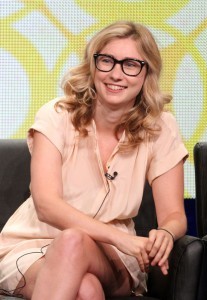 New Girl on Fox was this close to making our list of feminist shows to watch this fall — and has garnered our affection more with time — so we were thrilled to have a chance to talk to Liz Meriwether, the creator, writer, and executive producer of the show. Meriwether told us about creating a female centric show, the emerging prominence of female comedy in Hollywood, and the polarizing presence of star Zooey Deschanel.
New Girl on Fox was this close to making our list of feminist shows to watch this fall — and has garnered our affection more with time — so we were thrilled to have a chance to talk to Liz Meriwether, the creator, writer, and executive producer of the show. Meriwether told us about creating a female centric show, the emerging prominence of female comedy in Hollywood, and the polarizing presence of star Zooey Deschanel.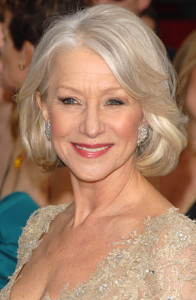 Aging gracefully is no easy feat, but it’s the overall awesomeness of these women that inspires us. Their success, activism and individuality make us aspire to be like them. Here are some of the women we want to be when we grow up: Photo: Retna Ltd
Aging gracefully is no easy feat, but it’s the overall awesomeness of these women that inspires us. Their success, activism and individuality make us aspire to be like them. Here are some of the women we want to be when we grow up: Photo: Retna Ltd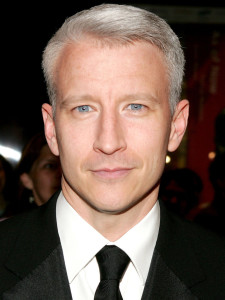 There’s nothing sexier than a guy who’s feminist, especially when even our most empowering female role models —
There’s nothing sexier than a guy who’s feminist, especially when even our most empowering female role models —  1. Pan Am (ABC): What Playboy Club botches, this drama about stewardesses in 1963 gets right. The show gives us a look at one of the few ways women then could use their feminine wiles to buy themselves some real freedom — by taking to the newly friendly skies. But it also doesn’t deny the sexism inherent in the process — Pan Am girls had to be beautiful, could be grounded for not wearing their girdles, endured weigh-ins, and had to quit at 32 or when they got married. Also a plus: It’s good, soapy fun, with affairs, broken engagements, and even undercover-spy flight attendants!
1. Pan Am (ABC): What Playboy Club botches, this drama about stewardesses in 1963 gets right. The show gives us a look at one of the few ways women then could use their feminine wiles to buy themselves some real freedom — by taking to the newly friendly skies. But it also doesn’t deny the sexism inherent in the process — Pan Am girls had to be beautiful, could be grounded for not wearing their girdles, endured weigh-ins, and had to quit at 32 or when they got married. Also a plus: It’s good, soapy fun, with affairs, broken engagements, and even undercover-spy flight attendants!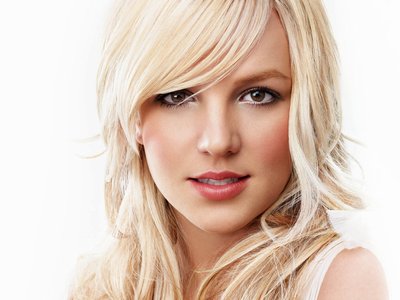 There’s no doubt that Britney Spears is not a feminist icon. But she could very well be the most important female pop culture figure of our times — which is exactly why it would be nothing short of revolutionary if girlfriend ever managed to escape the poptart prison her handlers have constructed around her during her decade-plus reign to realize her own grand significance. Here, we plead our case to the woman behind theFemme Fatale image. Oh, if only we believed she were reading!
There’s no doubt that Britney Spears is not a feminist icon. But she could very well be the most important female pop culture figure of our times — which is exactly why it would be nothing short of revolutionary if girlfriend ever managed to escape the poptart prison her handlers have constructed around her during her decade-plus reign to realize her own grand significance. Here, we plead our case to the woman behind theFemme Fatale image. Oh, if only we believed she were reading!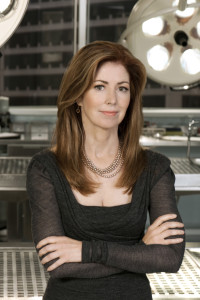
 In outer space, no one can hear your sexism.
In outer space, no one can hear your sexism. 2. Starbuck. While the modern iteration of space drama Battlestar Galactica had a number of fantastic female characters — flinty, courageous president Laura Roslin; conflicted Sharon Agathon, who lived a Cylon double life; strange, sexy Caprica Six — the most visible, complex and ultimately triumphant story of the series was that of Lt. Kara Thrace, the female reminagining of the original series’ kickass pilot, call sign Starbuck. This hard-drinking, high-flying, water-walking Viper jock packed a lot of punches into her petite blonde frame, and while her cockiness could grate, it was also justified by her chops in the cockpit. She spent most of the series fighting for survival, and in the end she led the fleet of what remained of humanity to its new home after a devastating nuclear attack. Her mindset is best described in recounting a scene in which she shot one enemy and then pointed a gun at another, smiling wolfishly. “Follow me,” she taunted him. “Please.”
2. Starbuck. While the modern iteration of space drama Battlestar Galactica had a number of fantastic female characters — flinty, courageous president Laura Roslin; conflicted Sharon Agathon, who lived a Cylon double life; strange, sexy Caprica Six — the most visible, complex and ultimately triumphant story of the series was that of Lt. Kara Thrace, the female reminagining of the original series’ kickass pilot, call sign Starbuck. This hard-drinking, high-flying, water-walking Viper jock packed a lot of punches into her petite blonde frame, and while her cockiness could grate, it was also justified by her chops in the cockpit. She spent most of the series fighting for survival, and in the end she led the fleet of what remained of humanity to its new home after a devastating nuclear attack. Her mindset is best described in recounting a scene in which she shot one enemy and then pointed a gun at another, smiling wolfishly. “Follow me,” she taunted him. “Please.” 3. Delenn. Babylon 5‘s leading female character had roots in her species’ religious community, but her badassery was not to be denied. The Minbari warrior’s army fought Earth to a standstill and then made peace, and Delenn underwent a metamorphosis to share part of herself, literally, with the human race. When her new friends on the Babylon space station were threatened, she showed up in a ship and announced that the only people who had ever survived her type of attack were behind her. “You are in front of me,” she said. “If you value your lives, be somewhere else.” Played by the stunning Mira Furlan, known to other geeks as Danielle from Lost, her courage on behalf of all of her people, human and Minbari, was an audience’s inspiration.
3. Delenn. Babylon 5‘s leading female character had roots in her species’ religious community, but her badassery was not to be denied. The Minbari warrior’s army fought Earth to a standstill and then made peace, and Delenn underwent a metamorphosis to share part of herself, literally, with the human race. When her new friends on the Babylon space station were threatened, she showed up in a ship and announced that the only people who had ever survived her type of attack were behind her. “You are in front of me,” she said. “If you value your lives, be somewhere else.” Played by the stunning Mira Furlan, known to other geeks as Danielle from Lost, her courage on behalf of all of her people, human and Minbari, was an audience’s inspiration.
 5. Zoe. Second in command of Serenity, the Firefly-class spaceship carrying a gang of thieves and mercenaries, Zoe Washburn is the strong and silent type. She met Captain Mal Reynolds while fighting for independence against the evil Alliance, and their browncoat friendship endured. Described by her pilot husband as being able to kill a man with her pinky, Zoe’s the one everyone else on the crew fears.
5. Zoe. Second in command of Serenity, the Firefly-class spaceship carrying a gang of thieves and mercenaries, Zoe Washburn is the strong and silent type. She met Captain Mal Reynolds while fighting for independence against the evil Alliance, and their browncoat friendship endured. Described by her pilot husband as being able to kill a man with her pinky, Zoe’s the one everyone else on the crew fears. Rihanna’s turning out to be quite the complicated figure, isn’t she? The gorgeous girl who gave us one of the greatest pop gifts ever in “Umbrella” once seemed headed for pretty-woman-who-sings-dance-hits-with-little-meaning territory; then, she became national news in the most unfortunate of ways, by being beaten by then-boyfriend Chris Brown at a pre-Grammy event two years ago. Now she’s emerged as a fascinating presence in pop: Yes, she still dabbles in those fluffy dance tunes (see her
Rihanna’s turning out to be quite the complicated figure, isn’t she? The gorgeous girl who gave us one of the greatest pop gifts ever in “Umbrella” once seemed headed for pretty-woman-who-sings-dance-hits-with-little-meaning territory; then, she became national news in the most unfortunate of ways, by being beaten by then-boyfriend Chris Brown at a pre-Grammy event two years ago. Now she’s emerged as a fascinating presence in pop: Yes, she still dabbles in those fluffy dance tunes (see her 

 Women wouldn’t be where we are today without the feminist icons who first fought for and inspired us. We owe our right to vote to Elizabeth Cady Stanton. Sojourner Truth spoke up for all women when the slavery-era abolitionist delivered her groundbreaking speech, “Ain’t I a Woman?” Betty Friedan gave us one of the most important feminist texts in The Feminine Mystique, helping women to break out of their happy-homemaker bonds—and she co-founded the National Organization for Women. Virginia Woolf and Dorothy Parker were among the first to give voice to the emotional depth and biting wit of women during times of extreme sexism. Shirley Chisholm paved the way for Hillary Rodham Clinton and any other female presidential hopeful. And Gloria Steinem made fighting for gender justice chic to generations of women. These icons—and countless others—were our mothers’ and grandmothers’ feminist role models. They planted the seeds for what’s become a blooming revolution that advances and changes with every move we make.
Women wouldn’t be where we are today without the feminist icons who first fought for and inspired us. We owe our right to vote to Elizabeth Cady Stanton. Sojourner Truth spoke up for all women when the slavery-era abolitionist delivered her groundbreaking speech, “Ain’t I a Woman?” Betty Friedan gave us one of the most important feminist texts in The Feminine Mystique, helping women to break out of their happy-homemaker bonds—and she co-founded the National Organization for Women. Virginia Woolf and Dorothy Parker were among the first to give voice to the emotional depth and biting wit of women during times of extreme sexism. Shirley Chisholm paved the way for Hillary Rodham Clinton and any other female presidential hopeful. And Gloria Steinem made fighting for gender justice chic to generations of women. These icons—and countless others—were our mothers’ and grandmothers’ feminist role models. They planted the seeds for what’s become a blooming revolution that advances and changes with every move we make. I’ve been personally debating the
I’ve been personally debating the